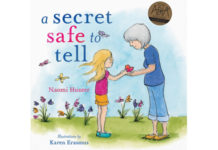As a parent, you’ve probably already noticed that young children love being read to, and learn important reading skills when they hear books read aloud. But did you know that being read to also enhances children’s cognitive (brain) development? Here’s how.
Academic achievement
Reading to young children helps their brain develop, and builds a foundation for future achievement at school and in the workplace in the future. At the end of the day (or childhood), frequently reading to your children adds up to better academic achievement. For example, research shows that children who are read to more frequently at age 4-5 perform better in school tests (including maths) at 8-9 years of age.
Knowledge
Books contain information about a wide range of topics that young children are learning about. So as you read, your child is exposed to mathematical concepts (e.g. size, shape, colour, numbers) and the bases of science (understanding cause and effect, or what happens if…). Reading stories provides opportunities for children to learn about events, places and things they don’t come across in their real life.
Being read to also helps children develop problems solving skills, because stories stimulate their young minds to think about and deduce (sometimes incorrectly) what will happen next. Children also have to work out what the point of the story being read to them is (e.g. if there is a moral lesson or if it’s just supposed to be a good laugh).
Memory, concentration and imagination
For babies, being read to helps develop concentration, listening and imagination. In fact, hearing stories read aloud is a great way to stimulate the imaginations of children of all ages.
Being read to aloud also develops other important cognitive skills, like memory and concentration, in toddlers and pre-schoolers. When your child starts to have favourite story books that they ask you to read over and over again, it’s a sign that they remember the book and what happens in it (i.e. that their memory skills are developing). When they sit and listen to you read for longer periods of time, it’s a sign that their attention span is increasing. Toddlers might go from starting to squirm and move around before the end of the first page, to being able to sit while you read them an entire children’s book. These cognitive skills ultimately contribute to children’s achievement at school.
Fine motor skills development
Reading books with your children can also be a time to help them develop their fine motor skills, that is, their ability to use their fingers to manipulate objects precisely. Any activity which requires them to move their fingers helps a young child develop fine motor skills. So encourage them to help you turn the pages, or lift the flaps to see what is hidden underneath, as you read to them. Choose books with appropriate types of pages to help them. For example, toddlers will probably be able to turn the thick pages of board books, whereas pre-schoolers will probably be able to turn thin paper pages, but in the beginning will probably turn over several pages at a time.
More information

Learn more about the cognitive, emotional and developmental benefits of reading to children here.
References
- Women and Children’s Health Network. Why stories are important. 2017. [cited 16 June 2017] Available from: [URL link]
- International Literacy Association. Make the most of reading aloud. 2017. [cited 22 June 2017]. Available from: [URL link]
- Kalb G, van Ours JC. Reading to young children: A head start in life? 2013. [cited 16 June 2017]. Available from: [PDF]
- Victoria Department of Early Childhood Development. Reading to Young Children- a head start in life. 2013. [cited 15 June 2017]. Available from: [PDF]
- Women and Children’s Health Network. Reading with Babies. 2015. [cited 16 June 2017]. Available from: [URL link]
- Abram T, Reading aloud to children has many benefits. Michigan State University- Extension. 2012. [cited 25 June 2017]. Available from: [URL link]
- Cornell University Extension Program. Benefits of reading to your child. 2016. [cited 25 June 2016. Available from: [URL link]
- Virginia Early Childhood Development Alignment Program. Milestones of child development- A guide to young children’s learning and development from birth to kindergarten. 2013. (cited 12 March 2017). Available from: [PDF]
- Community Childcare Cooperative Ltd (NSW). Development Milestones and the Early Years Learning Framework and the National Quality Standards. Australian Government Department of Education, Employment and Workplace Relations. 2012. (cited 5 May 2014). Available from: [URL Link]



 (4 votes, average: 4.00 out of 5)
(4 votes, average: 4.00 out of 5) 






